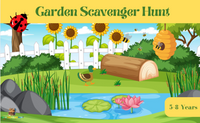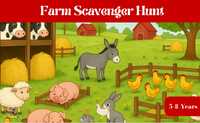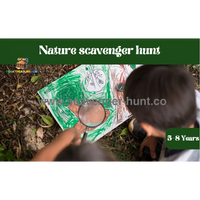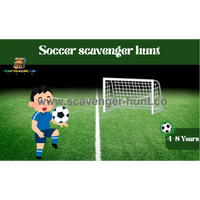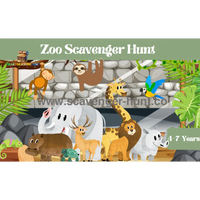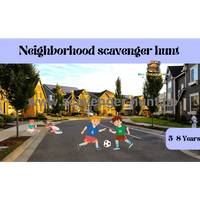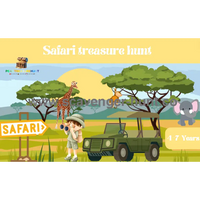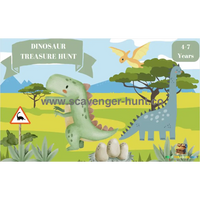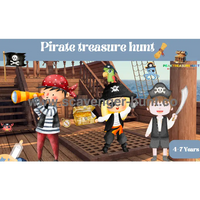Long car rides with children don't have to be synonymous with "Are we there yet?" choruses and backseat meltdowns. With proper planning and a diverse collection of engaging activities, road trips can become some of your family's most cherished memories. The key lies in understanding that successful road trip entertainment requires variety, adaptability, and activities that work within the unique constraints of vehicle travel.
The modern family road trip presents both opportunities and challenges that previous generations didn't face. While technology offers unprecedented entertainment options, it's important to balance screen time with interactive activities that promote family bonding, creativity, and learning. The best road trip games engage multiple senses, accommodate different age groups simultaneously, and can be easily modified based on changing moods, energy levels, and trip circumstances.
Successful road trip entertainment also requires understanding the rhythm of long-distance travel. Children's attention spans, energy levels, and patience fluctuate throughout extended journeys. Activities that work perfectly during the first hour might fall flat during the afternoon slump, while games that seem too challenging early in the trip might be exactly what restless kids need after several hours of travel. The key is having a flexible arsenal of options that can be deployed strategically throughout your journey.
Classic Observation Games: Building Awareness and Focus
Observation games form the backbone of road trip entertainment because they leverage the constantly changing scenery outside your windows. These activities help children develop attention skills, pattern recognition, and environmental awareness while keeping them engaged with their surroundings rather than focused on the confined space of the vehicle.
I Spy
The traditional "I Spy" game remains popular because of its infinite adaptability and accessibility to all age groups. For younger children, focus on obvious colors and shapes: "I spy something red," or "I spy something round." As children develop, increase complexity by incorporating more specific attributes: "I spy something that helps people travel," or "I spy something that grows." Advanced players can handle abstract concepts: "I spy something that represents communication," or "I spy something that shows human impact on the environment."
License Plate Games
License plate games offer numerous variations that can entertain families for hours while teaching geography and observation skills. The classic version involves spotting plates from different states, but variations include finding plates with specific letters or numbers, creating words from license plate letters, or researching interesting facts about states as you spot their plates. Keep a travel log where children can record their finds and learn about different regions of the country.
Color Scavenger Hunts
Color scavenger hunts challenge children to find objects of specific colors in the passing landscape. Create lists of common and unusual colors, encouraging children to look beyond obvious choices. Finding something purple might require spotting wildflowers, while locating something orange could involve noticing construction equipment or autumn leaves. This activity develops visual discrimination and creative thinking while maintaining engagement with the external environment.
Counting Games
Counting games provide structure and mathematical practice while utilizing constantly changing scenery. Count different types of vehicles (trucks, motorcycles, RVs), architectural features (bridges, water towers, church steeples), or natural elements (cows, horses, different tree types). Create competitive variations where family members compete to spot the most examples, or cooperative versions where everyone works together to reach target numbers.
Geographic Observation Challenges
Geographic observation challenges help children understand regional differences and cultural variations as you travel. Challenge them to notice changes in architecture styles, farming practices, vegetation, or even accents at rest stops. These observations can spark discussions about climate, history, and cultural diversity while making children more aware of the rich variety within their own country.
Story Building from Observations
Story building from observations combines creativity with environmental awareness. Take turns adding to a collaborative story based on things you observe outside the vehicle. A red barn might inspire a story about farm animals, while a river could lead to adventures about fish or water sports. This activity develops narrative skills and imagination while keeping everyone engaged with the passing scenery.
Word Games and Language Activities: Developing Communication Skills
Language-based games are ideal for road trips because they require no equipment, work in any lighting condition, and can be easily adapted for different age groups and attention spans. These activities develop vocabulary, verbal reasoning, and communication skills while providing entertainment that engages the mind without requiring visual focus.
Twenty Questions
Twenty Questions remains one of the most versatile and educational road trip games available. The question-asking process develops logical thinking and deductive reasoning skills while teaching children how to gather information systematically. Start with concrete categories like animals, foods, or household objects for younger children. Advanced players can handle abstract concepts, historical figures, or fictional characters. Encourage strategic questioning that eliminates large categories efficiently.
Word Association Games
Word association games help children make creative connections while expanding their vocabulary and conceptual understanding. Begin with simple associations where each person says a word related to the previous word. Variations include rhyming chains, where each word must rhyme with the previous one, or category chains, where all words must belong to the same general category. These games develop flexible thinking and verbal fluency.
Alphabet Games
Alphabet games provide structure while encouraging observation and creativity. The classic car alphabet game involves finding letters A through Z on signs, license plates, or buildings in order. Variations include alphabet categories (name an animal for each letter), alphabet storytelling (create a story where each sentence begins with the next letter), or alphabet geography (name places starting with each letter).
Rhyming Games
Rhyming games develop phonological awareness and linguistic creativity. Challenge children to find words that rhyme with objects they observe, create silly poems about family members, or invent nonsense words that follow English rhyming patterns. These activities support reading development while providing plenty of giggles and creative expression.
Category Games
Category games help children organize information while expanding their knowledge base. Choose categories like "Things that are cold," "Jobs that help people," or "Things you find in the ocean." Challenge children to think of as many examples as possible, encouraging creative thinking beyond obvious choices. Advanced versions involve overlapping categories: "Name something that is both round and edible."
Storytelling Chains
Storytelling chains develop narrative skills and collaborative creativity. Begin a story and have each family member add one sentence before passing to the next person. Encourage plot development, character creation, and creative problem-solving. Variations include stories that must incorporate specific words, stories told entirely in questions, or stories where each person can only add one word at a time.
Memory Games
Memory games using words challenge children to develop working memory and attention skills. "I'm going on a trip and I'm bringing..." requires players to remember and repeat increasingly long lists while adding their own items. Variations include "I went to the store and bought..." or "In my suitcase I packed..." These games develop sequential memory and listening skills.
Creative Games and Imagination Activities: Fostering Innovation
Creative activities transform the limited space of a vehicle into a boundless realm of imagination and artistic expression. These games help children develop innovative thinking, problem-solving abilities, and self-expression while providing calming, focused activities that can help regulate energy levels during long journeys.
Character Creation Games
Character creation games encourage children to develop storytelling abilities and emotional intelligence. Challenge them to create detailed characters based on people they observe at rest stops, in other vehicles, or in their imagination. What are these characters' names, occupations, hobbies, and dreams? What challenges do they face, and how do they overcome them? This activity develops empathy, creativity, and narrative skills.
Invention Challenges
Invention challenges encourage innovative thinking and problem-solving. Present hypothetical problems and challenge children to invent solutions using only materials available in the car or things they observe outside. How would you design a vehicle that could travel on both land and water? How could you create a communication system using only natural materials? These challenges develop creative thinking and engineering mindset.
Alternative Reality Games
Alternative reality games stretch imagination while encouraging flexible thinking. What if gravity worked differently? What if animals could talk? What if cars could fly? Encourage children to think through the implications of these changes and create detailed scenarios about how life would be different. These activities develop hypothetical reasoning and creative problem-solving.
Art Challenges
Art challenges using limited materials foster resourcefulness and artistic expression. Challenge children to create pictures using only items available in the car – pens, napkins, magazines, or even finger drawings on fogged windows. These constraints often spark unexpected creativity and help children appreciate that artistic expression doesn't require elaborate supplies.
Song Creation
Song creation activities combine musical expression with language skills. Challenge children to create songs about their trip, their family, or things they observe. They can write new lyrics to familiar tunes, create original melodies, or even compose rap songs about their travel experiences. These activities develop rhythm, rhyme, and verbal creativity.
Dream Destination Planning
Dream destination planning encourages research skills and goal setting. Challenge children to plan imaginary trips to places they'd like to visit. What would they want to see and do? How would they get there? What would they need to pack? This activity can incorporate real geography and cultural learning while encouraging planning skills and aspiration setting.
Educational Games: Learning While Traveling
Road trips provide exceptional opportunities for experiential learning that connects classroom concepts with real-world observations. Educational games can make academic subjects more engaging while helping children understand how knowledge applies beyond school settings.
Geography Challenges
Geography challenges help children understand spatial relationships and regional characteristics. Use maps to track your progress, estimate travel times, and identify geographic features you'll encounter. Challenge children to predict what the landscape will look like based on topographic maps, or to identify the states you'll travel through and learn interesting facts about each one. These activities develop map reading skills and geographic literacy.
Math Road Trip Challenges
Math road trip challenges provide practical applications for mathematical concepts. Calculate travel time based on distance and speed, figure out gas mileage and fuel costs, or determine how long it will take to travel specific distances at different speeds. Younger children can practice counting and basic arithmetic using mile markers, exit numbers, or vehicle counts. Older children can handle percentages, ratios, and algebraic thinking.
Science Observation Projects
Science observation projects turn the passing landscape into a natural laboratory. Observe how plant life changes with elevation or latitude, identify different cloud formations and discuss weather patterns, or notice how human settlements adapt to different geographic features. Keep a science journal documenting observations and hypotheses about natural phenomena.
History Connections
History connections help children understand how historical events shaped the regions you're traveling through. Research the history of towns you pass, discuss how transportation routes influenced settlement patterns, or identify historical markers and learn about events they commemorate. This approach makes history tangible and relevant while connecting past events to present-day observations.
Economics Lessons
Economics lessons emerge naturally from travel observations. Discuss how agricultural products change in different regions, observe how economic activities vary by geography, or analyze how transportation costs affect the price of goods. These conversations help children understand economic concepts through real-world examples.
Cultural Studies
Cultural studies opportunities arise from observing regional differences in architecture, food, and customs. Discuss how climate and geography influence cultural practices, sample regional foods and discuss their origins, or observe how building styles reflect local materials and weather conditions. These observations develop cultural awareness and global perspective.
Interactive Games for Multiple Players: Building Family Bonds
Group games that accommodate multiple ages and personalities simultaneously are essential for maintaining harmony during extended travel. These activities encourage cooperation, communication, and mutual entertainment while helping family members learn more about each other.
Family Trivia Games
Family trivia games allow each member to share knowledge while learning new things about their relatives. Create questions about family history, personal preferences, childhood memories, or shared experiences. Younger children can contribute easier questions while older family members handle more complex challenges. This activity strengthens family connections and communication.
Collaborative Storytelling
Collaborative storytelling projects encourage creativity while requiring cooperation and listening skills. Each person contributes to an ongoing story, building on previous contributions while adding their own creative elements. Establish basic rules about keeping stories appropriate and encouraging all contributors, but allow plenty of room for imagination and humor.
Group Decision-Making Games
Group decision-making games help children develop negotiation skills and democratic thinking. Present hypothetical scenarios where the family must make collective decisions: Which superpower would be most useful? What would be the perfect family vacation? How would you redesign your house? These discussions develop reasoning skills and perspective-taking while revealing family values and preferences.
Memory Sharing
Memory sharing activities help family members learn about each other's experiences and perspectives. Share favorite memories from previous trips, discuss what each person is most looking forward to about your destination, or take turns describing perfect days. These conversations strengthen emotional connections and family identity.
Planning and Goal-Setting Discussions
Planning and goal-setting discussions engage everyone in trip decision-making while teaching planning skills. Discuss what everyone wants to do at your destination, plan meal stops that accommodate different preferences, or set family goals for the trip. This involvement gives children ownership in the travel experience while developing organizational skills.
Gratitude Games
Gratitude games help maintain positive attitudes during challenging travel moments. Take turns sharing things you're grateful for, people who have helped your family, or positive aspects of your current trip. These activities develop positive thinking patterns and emotional regulation skills while strengthening family bonds.
Technology Integration: Balancing Screen Time with Interaction
While many families aim to limit screen time during road trips, strategic technology integration can enhance rather than replace interactive activities. The key is using technology to facilitate learning, creativity, and family interaction rather than passive consumption.
Educational Apps
Educational apps can supplement learning games with interactive content that wouldn't be possible through conversation alone. Geography apps can show satellite views of areas you're traveling through, astronomy apps can identify constellations during evening travel, and nature identification apps can help identify plants and animals you observe. Choose apps that encourage exploration and discovery rather than passive consumption.
Audio Adventures
Audio adventures including podcasts designed for families, audiobooks, and interactive stories can provide shared entertainment that doesn't isolate family members behind individual screens. Choose content that sparks discussion and questions, and pause regularly to talk about what you're hearing. This approach combines the convenience of technology with the bonding benefits of shared experiences.
Photo Documentation
Photo documentation projects give children responsibility for capturing trip memories while developing visual storytelling skills. Assign each child specific photo missions: document interesting architecture, capture family moments, or create a visual diary of the journey. These projects encourage observation skills and creative expression while creating lasting trip memories.
Research Challenges
Research challenges using mobile devices can enhance real-world observations with additional information. When you spot an interesting landmark, challenge children to research its history. When you see unusual wildlife, look up facts about the species. This approach uses technology to deepen learning rather than replace real-world engagement.
Navigation Games
Navigation games help children develop map reading and spatial reasoning skills using GPS technology. Have children track your progress on digital maps, estimate arrival times, or identify alternate routes. These activities develop geographic skills while giving children involvement in trip logistics.
Physical Activity Games: Managing Energy in Confined Spaces
Extended periods of sitting can lead to restlessness and discomfort for children. Physical activity games that work within vehicle constraints help children release energy, improve circulation, and maintain comfort during long journeys.
Stretching Sequences
Stretching sequences designed for car seats help children maintain flexibility and comfort during extended sitting. Create simple routines that include neck rolls, shoulder shrugs, ankle circles, and seated spinal twists. Make it fun by creating stories about the stretches or challenging children to hold positions for specific counts.
Muscle Tensing Games
Muscle tensing games help children experience physical release without movement that might disturb other passengers. Progressive muscle relaxation techniques can be adapted into games where children tense and release different muscle groups in sequence. This approach provides physical activity while also teaching stress management techniques.
Breathing Exercises
Breathing exercises help children manage anxiety, motion sickness, and restlessness while providing gentle physical activity. Teach children different breathing patterns through games: breathe like a sleeping bear (slow and deep), like a hummingbird (quick and light), or like ocean waves (rhythmic and steady). These techniques provide self-regulation tools while addressing physical needs.
Finger and Hand Games
Finger and hand games provide fine motor activity that doesn't require large movements. Teach children finger plays, hand clapping patterns, or simple exercises that work small muscles. These activities help maintain dexterity and provide sensory stimulation without disrupting other passengers.
Seated Dance
Seated dance activities help children express themselves physically while remaining safely buckled. Create dances that use upper body movements, encourage children to dance along with music, or challenge them to create choreography using only movements possible while seated. These activities provide creative expression and physical release.
Quiet Time Activities: Balancing Stimulation and Rest
Long road trips require periods of quiet activity that allow children to rest, recharge, and process their experiences. These activities provide necessary downtime while maintaining engagement and preventing boredom.
Silent Observation
Silent observation challenges help children develop mindfulness and attention skills while providing peaceful activity. Challenge children to spend specific time periods simply watching the passing scenery without talking, noticing details they might usually miss. This activity develops concentration and present-moment awareness.
Quiet Drawing
Quiet drawing activities provide creative expression and fine motor practice in a calm format. Provide simple drawing materials and encourage children to sketch things they observe, create abstract patterns, or draw their thoughts and feelings about the trip. These activities support artistic development and emotional expression.
Reading Time
Reading time provides educational benefit and quiet engagement for children who can read independently. Choose books related to your destination, travel adventures, or simply favorite stories that provide comfort and familiarity. Audio books can serve similar purposes for non-readers while still providing language development benefits.
Meditation and Mindfulness
Meditation and mindfulness exercises adapted for children help develop emotional regulation and stress management skills. Simple techniques like counting breaths, progressive muscle relaxation, or guided imagery can help children calm down after exciting activities or prepare for rest. These skills benefit children throughout their lives.
Journal Writing
Journal writing activities help children process their experiences while developing writing skills and self-reflection abilities. Encourage children to write about their favorite parts of the trip, things they've learned, or goals for upcoming destinations. These activities create lasting trip memories while supporting academic skills.
Rest Stop Activities: Maximizing Break Time
Strategic use of rest stops can transform necessary breaks into energy management opportunities that enhance the overall trip experience. Well-planned stop activities help children release physical energy, reset their attitudes, and prepare for the next driving segment.
Physical Challenges
Physical challenges at rest stops help children burn energy efficiently in limited time. Create obstacle courses using available features, organize running races in safe areas, or challenge children to specific physical tasks like hopping on one foot or doing jumping jacks. These activities provide cardiovascular exercise and energy release.
Exploration Games
Exploration games encourage children to investigate rest stop environments while developing observation skills. Challenge them to find specific plants, identify architectural features, or locate historical markers. These activities provide learning opportunities while encouraging physical movement.
Social Interaction
Social interaction opportunities at rest stops help children practice communication skills with strangers in safe, supervised settings. Encourage appropriate interactions with other travelers, conversations with rest stop staff, or participation in activities with other families. These experiences develop social confidence and cultural awareness.
Sensory Breaks
Sensory breaks help children reset their sensory systems after extended periods in confined spaces. Encourage them to feel different textures, listen to new sounds, or notice different smells in the environment. These experiences provide sensory stimulation and nervous system regulation.
Planning Discussions
Planning discussions during rest stops help children process recent experiences and prepare for upcoming activities. Review highlights from the last driving segment, discuss expectations for the next portion of the trip, or make decisions about upcoming activities. This approach maintains engagement and anticipation while providing organizational skills practice.
Age-Specific Adaptations: Meeting Developmental Needs
Different age groups require different approaches to road trip entertainment. Understanding developmental needs and attention spans helps ensure that activities are appropriately challenging and engaging for all family members.
Toddlers (Ages 2-4)
Toddlers require activities with very short duration and high sensory engagement. Focus on simple games that last 5-10 minutes, provide frequent breaks for physical movement, and offer comfort items that provide security during travel. Activities should emphasize repetition, familiar concepts, and sensory experiences.
Sensory bags filled with different textured items provide safe exploration opportunities. Simple songs with actions help maintain engagement while providing language development. Snack activities that involve sorting, counting, or identifying colors combine nutrition with learning opportunities.
Preschoolers (Ages 4-6)
Preschoolers can handle slightly longer activities and more complex concepts while still needing frequent variety and physical breaks. Focus on interactive games that develop pre-academic skills while providing entertainment and family bonding opportunities.
Alphabet games support literacy development while providing structure that appeals to this age group. Counting activities develop numeracy skills while utilizing constantly changing scenery. Simple crafts using travel-friendly materials provide creative expression and fine motor development.
School-Age Children (Ages 6-12)
School-age children can engage in more complex activities that incorporate academic learning with entertainment. They can handle competitive elements, longer attention spans, and collaborative projects that involve multiple family members.
Strategy games that require planning and decision-making appeal to developing cognitive abilities. Research projects about destinations or regions you're traveling through provide educational value while maintaining engagement. Creative writing activities help children process their experiences while developing communication skills.
Teenagers (Ages 12+)
Teenagers appreciate activities that respect their developing independence while still providing family connection opportunities. Focus on sophisticated challenges, real-world applications, and activities that allow for personal expression.
Navigation responsibilities give teenagers real-world skills while involving them in trip logistics. Photography projects allow for creative expression while documenting family memories. Discussion topics about current events, future plans, or philosophical questions provide intellectual stimulation while strengthening family communication.
Managing Difficult Moments: Strategies for Success
Even the best-planned road trips include challenging moments when children become tired, frustrated, or overwhelmed. Having strategies for managing these situations helps maintain family harmony and trip enjoyment.
Preventing Problems
Prevention strategies address common road trip challenges before they become serious problems. Regular breaks, appropriate snacks, comfortable seating arrangements, and realistic expectations help minimize stress and discomfort that can lead to behavioral challenges.
Flexible scheduling allows for adjustments when children need longer breaks or different activities. Emergency entertainment reserves special activities for particularly challenging moments. Comfort items provide security and familiarity during stressful times.
De-escalation Techniques
De-escalation techniques help manage conflicts and meltdowns when they occur. Calm communication, validation of feelings, and problem-solving approaches help children learn to manage difficult emotions while maintaining family relationships.
Distraction strategies can redirect attention from problems to solutions. Breathing exercises help children regulate their emotions. Humor and perspective-taking can transform challenging moments into family stories and learning opportunities.
Recovery Strategies
Recovery strategies help families bounce back from difficult moments and return to positive experiences. Acknowledgment of challenges without dwelling on them, focus on solutions rather than blame, and celebration of successful problem-solving help maintain family morale.
Flexibility in expectations and schedules allows families to adapt to unexpected challenges. Learning from difficulties helps families develop better strategies for future trips. Gratitude practices help maintain positive perspectives even during challenging times.
Planning and Preparation: Setting Up for Success
Successful road trip entertainment requires advance planning and thoughtful preparation. Understanding your family's needs, preferences, and dynamics helps you select appropriate activities and prepare necessary materials.
Assessment of Family Needs
Assessment of family needs involves understanding each family member's interests, attention spans, learning styles, and energy patterns. Consider how different family members respond to stimulation, challenge, and social interaction to create a balanced activity plan.
Age ranges within your family affect activity selection and timing. Special needs or medical considerations may require specific accommodations. Travel experience levels influence how much structure and variety you'll need to maintain engagement.
Activity Selection
Activity selection should include variety in energy levels, skill requirements, group sizes, and time requirements. Plan activities for different times of day, weather conditions, and mood states to ensure you have appropriate options for any situation.
Balance between active and quiet activities helps manage energy levels throughout the trip. Educational and entertainment activities provide variety while supporting different family values. Individual and group activities accommodate different social needs and preferences.
Material Preparation
Material preparation involves gathering supplies for planned activities while keeping vehicle space and safety considerations in mind. Create activity kits that contain necessary supplies for different types of games and projects.
Organization systems help keep materials accessible and orderly during travel. Safety considerations ensure that all materials are appropriate for vehicle use. Backup plans provide alternatives when primary activities don't work as expected.
Communication and Expectations
Communication and expectations setting helps all family members understand their roles in maintaining positive travel experiences. Discuss behavior expectations, participation requirements, and safety rules before beginning your journey.
Involvement in planning gives children ownership in the trip experience while teaching organizational skills. Flexibility in expectations allows for adjustments based on actual trip conditions. Positive framing helps children see road trip time as an opportunity for adventure and family bonding rather than something to endure.
The key to successful road trip entertainment lies in variety, flexibility, and family engagement. By understanding your family's unique needs and preferences, preparing diverse activity options, and maintaining positive attitudes toward challenges, you can transform long car rides into treasured family experiences that create lasting memories and stronger relationships. The journey truly can become as meaningful and enjoyable as the destination when families approach road trip time as an opportunity for connection, learning, and adventure rather than simply a means of transportation.
Road trips offer unique opportunities for uninterrupted family time, shared discoveries, and collaborative problem-solving that are increasingly rare in our busy, connected world. By investing time and thought into planning engaging activities, families can create travel experiences that strengthen bonds, develop skills, and generate stories that will be shared for years to come. The best road trip games don't just pass time – they create connections and memories that last long after you've reached your destination.





